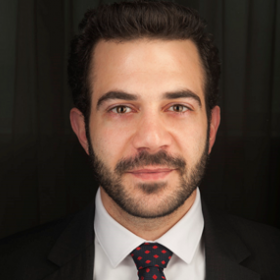
The Year in Conflict and Peace
With the New Year approaching, several EWI staff and fellows offered their lists of what they believed were the most significant events of 2013.
Agnes Venema, Program Coordinator, Parliamentarians Network
Syria’s Use of Chemical Weapons
The chemical weapons attack by Syria against its population did not come as a surprise. The subsequent involvement of parliaments to share the decision-making burden as to whether to intervene or not is a relatively new trend post-Iraq. The UK saw proposals for military intervention voted down in parliament, and opposition in the U.S. Congress was also strong.
Snowden Revelations
Parliaments around the world are calling for the national security agencies to be reined in after Edward Snowden leaked confidential information on spying activities by the NSA. Parliaments are demanding more information from their national security agencies; they want to be better equipped to monitor the work of the government.
Iran Elections
The election of a more moderate president who is willing to reach out to the West had an enormous impact on the geopolitical dialogues in the broader Middle East. Not only did it open up talks on Iran’s nuclear program, but the European Parliament views this as a step in the right direction and returned this week from their first official delegation trip to Iran in six years.
Croatia joins the European Union
After a long period of preparation, 2013 marked the year in which Croatia finally joined the European Union. Croatian membership marks the beginning of a new era for the European Union, signaling a willingness to welcome more countries from the former Yugoslavia in the future. It is a step closer to achieving the aspirations of the Union: to be the largest and most successful peace project.
Michael Zumot, Program Associate, Regional Security
Morsi is Booted Out
Following mass protests for and against Egypt’s President Morsi, Army Chief General Abdul Fatah al-Sisi ousted Morsi and suspended the constitution. This was followed by mass protests and ever -growing division between Morsi supporters and opposition.
Syria’s Use of Chemical Weapons
Opposition groups claimed that hundreds were killed when Assad forces used chemical weapons against the rebel’s strongholds in the Damascus countryside. This was the tipping point that eventually led to the U.S.-Russian-Syrian agreement on the dismantling and destroying of Syria’s chemical weapons—Syria’s only strategic weapon.
No Longer on Hold
For the first time in three decades, American and Iranian leaders spoke directly to each other. In September, a phone conversation took place between newly-elected Iranian reformist President Hassan Rohani and President Obama.
Increased Bloodshed in Iraq
2013 saw the worst bloodshed in Iraq since 2008. Nearly 6,000 Iraqis were killed by sectarian violence and suicide attacks.
_


